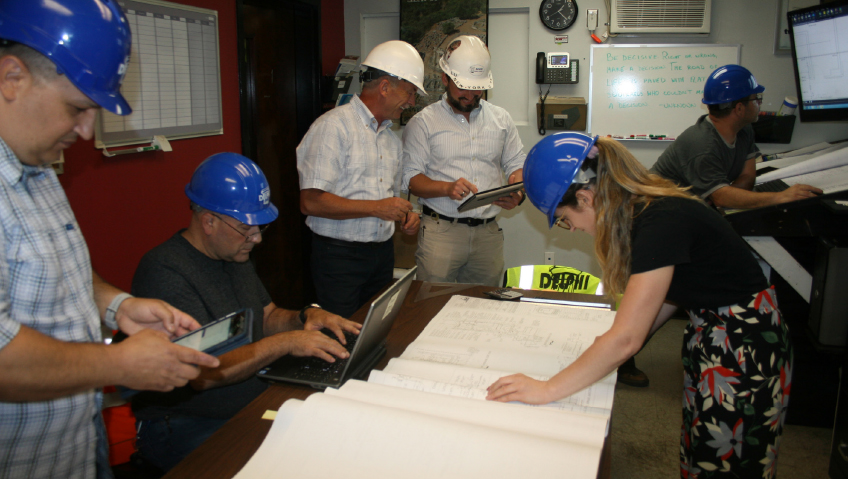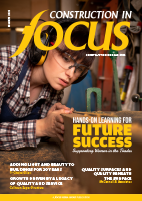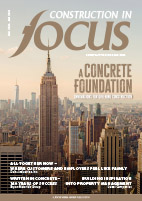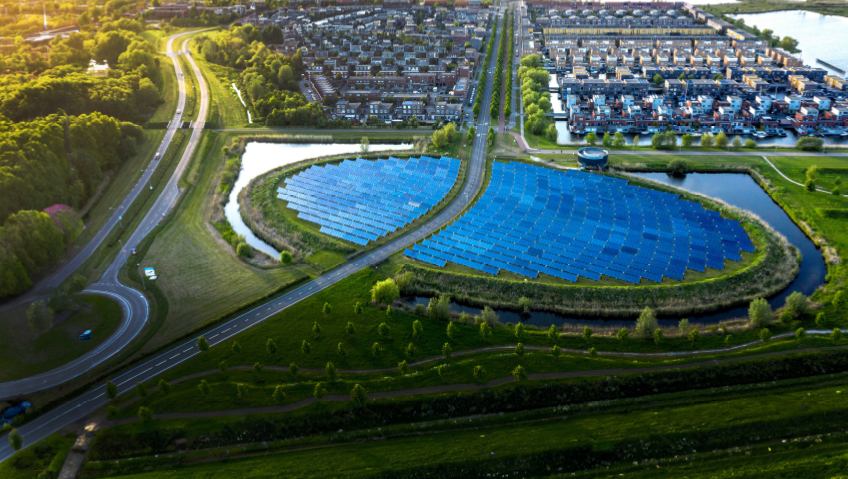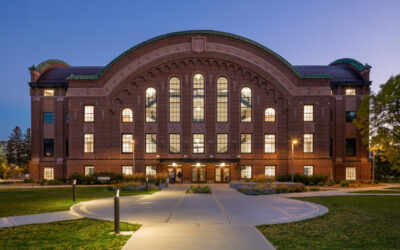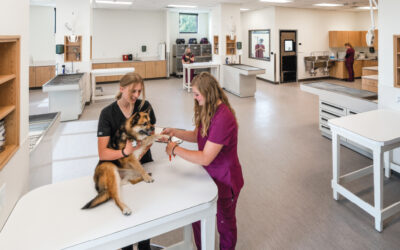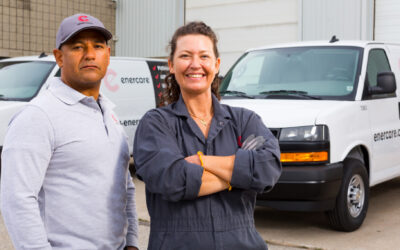Delphi Plumbing & Heating Inc., an industrial and commercial mechanical contractor in Brooklyn, New York, owes its success to old-fashioned business ethics, leading-edge technology, loyal, hardworking employees, and an owner whose story epitomizes the American dream.
We had been looking forward to speaking with Jim Sidiropoulos, CEO, President, and Founder of Delphi Plumbing & Heating Inc. and his son, Dimitri Sidiropoulos, the company’s Vice President for our May edition. But we were foiled by that nasty coronavirus. By mid-June, however, both New York City and New Jersey, where Delphi is licensed, were beginning to re-open, and on June 24, we had the chance to speak with father and son.
“I remember 2008 and that was brutal,” Jim told us, “but this is worse by far. It’s one thing for the economy to take a dive. It’s a whole different thing to have the country, and the entire world, in peril, with people dying by the thousands because of a crazy virus, in addition to the economy shutting down. We were not affected personally by the virus, but a couple of our employees were. Thankfully they got through it and we are grateful for that,” he shared.
“Our business has been hit as hard as any because all construction was brought to a halt in NYC. The only ongoing work for us is at water-pollution treatment plants, which are considered essential. So despite the slowdown, we are incredibly happy that we did not lay off any of our office employees, most of whom are still working from home, and we were able to keep most of our field personnel, so we are proud about that.”
Health of the nation
Referencing the plumber’s motto, ‘The plumber protects the health of the nation,’ Dimitri added that “Covid-19 has shown us the importance of proper hygiene, and we are also very proud to be part of an industry that works toward that goal.”
By the end of June, as construction was beginning to re-open in NYC with strict protocols in place, Delphi returned to work on only two public schools where construction had begun prior to the shutdown. Upon entering the job site, workers are required to put on masks, have their temperatures checked and answer questions regarding symptoms and contacts, with the process repeated after breaks. Shortly after re-opening, one worker from a different trade tested positive and the entire site had to be shut down, completely disinfected over a 24 hour-period, and all employees tested. Fortunately, none of the Delphi employees tested positive. However, as Dimitri explained, “we have to be really careful and follow all the protocols. They are time consuming and take from an already reduced schedule, but if we don’t follow them, the job could be shut down again, resulting in more lost time, or worse, an employee falling ill.”
Jim Sidiropoulos was born and raised in Greece and came to the U.S. as a teenager. “I am what you would call the American Dream,” he says. He joined the plumbers’ union in 1972 as an apprentice. In 1980, three years after becoming a journeyman, he decided he’d do better by opening his own business. He named it for the Greek ancient temple of Delphi, a place he had visited many times, and incorporated the company in 1983.
“The freedom of being my own boss was exhilarating,” he says, but admits it wasn’t easy. “It was a struggle in the beginning, as with any start-up. It was just me, one helper and a beat-up truck that I bought with 200,000 miles on it leaking oil like a sieve.”
“True to my word”
By 1985 he received his New York City Master Plumber’s License, following that up with a NYC Fire Protection License and a New Jersey Master Plumber’s License. He then expanded into HVAC services, enabling the company to function as a full-service mechanical contractor on both ground-up large construction sites and major commercial and industrial renovation work for all levels of government – municipal, state and federal.
“I discovered early on,” Jim says, “that in order to succeed, I needed to be persistent, to be responsible and most importantly, to be true to my word. I have learned over the years that as time goes by people may forget a lot of things about you, but they will always remember if you were true to your word. That’s why I deal with the same bankers, accountants, bonding agents, and insurance brokers,” he says, “and why I still have key employees by my side, all from the very beginning.”
Most of Delphi’s 60 employees have been with the company for an average of 20 years. A few have been there 30 or even 35 years. “I choke up when I say a few words at our company picnics,” he says. “I know there are people who will jump at the chance to leave a company if they think they can do better somewhere else, but our people, who are treated like family, have stuck with us through thick and thin and I am very glad about that. And now I’m happy to have my son, Dimitri, as Vice President to continue the company. He’s attained his NYC Master Plumber’s License, and he’s smart, decisive, respected and always acts on the company’s mission and philosophy.”
A key element of the company’s philosophy is ongoing education and training, and an important component therein is Delphi’s longstanding membership in the Mechanical Contractors’ Association of America. This professional association, which we featured in our July issue, serves the needs of over 2,600 leading companies that provide HVAC, plumbing, piping, and mechanical services.
Says Dimitri, “We have found our membership provides valuable information and training with regards to mechanical contracting, and we take advantage of the various training programs they provide.”
The company also employs unionized workers, because as Jim explained, “We believe in fair wages for a fair day’s work and we believe unionized workers are well-trained in safety, which we take very seriously, and in their own craft.”
Challenges of the public sector
Each aspect of the public sector in which Delphi works presents its own kind of challenge. For the LEED-certified schools it’s a matter of having everything in place before work begins and then working through the summer at a sprint to ensure a student-ready building in September.
Renovation work at penal institutions can be complicated by lock-downs following inmate disturbances. Jim recalls one occasion where his employees had to remain in place for four hours before they could leave. Hospitals present their own unique challenges regarding noise and dust restrictions and, because of traffic flow, much of the work must be done at night.
But all of that pales in comparison to renovations of wastewater-treatment plants, something Delphi has been doing for the past 30 years. As Jim explains, “Ground up construction always presents fewer challenges, because you have a clear open space above you. But with major plant renovation work, there’s tight scheduling involved, shutdowns, by-passes, reactivations, and having to deal with conditions that match new to existing systems.”
This is further complicated by the fact that a lot of the work is in confined spaces where workers have to deal with methane gas and other potential risks that are natural byproducts of the sewage the plants are built to handle. As Jim describes it, large pipes carry this sewage from the five boroughs into these plants where, via a maze of a piping, pumps and other systems, it gets treated to the point where it can be safely disposed of into sanitary landfills.”
Adds Dimitri: “All of our installations in new buildings are buried underground and behind walls and no one sees the hard work, dedication and craftsmanship that goes into making plumbing, or any other mechanical system, work. But if it weren’t for the craftsmanship of the people who install it, no one would have the luxuries they take for granted, like clean drinking water and proper sewage disposal.”
Embracing technology
As far back as the mid-80s, Jim recognized the important role technology was set to play in business management. “I embraced it from the very beginning when computers were operated by a DOS system and I remember having five-and-a-quarter-inch floppy drives and taking them in and out. We have come a long way since then and our project managers all have iPads on which they can do anything from estimating, to bidding, to managing every aspect of a project.”
All of this is possible because of an in-house solutions software program which Jim, who modestly calls himself an amateur, developed – using a Claris International database – which is flexible and able to meet specific and unique needs.
“Over the years,” he says, “we have created modules that at the end of the day become one big program that incorporates all the processes – bidding, estimating, project management – so that whether we’re in our office or halfway around the world we can log in and see new developments or instructions from the general contractors or the owners,” he explains.
“On a daily basis and on all our jobs, we record changes along with the temperature, wind and precipitation, or anything that may affect productivity or create delays. If deadlines are not met there may be penalties to be paid to the owner, according to the contract, so it is important that we log everything. This way, if we need to look up something that happened one or two years ago we can easily do it through our project management module.”
Tailored software
Because the software solution is an in-house program, it’s easily managed as opposed to dealing with an outside agency or with commercially available software that is more rigid and doesn’t meet the company’s needs.
Not only is the program tailored to the company’s uniqueness, it also meets the unique needs of the clients, whether they be municipal, state or federal agencies. It allows Delphi to stay on top of permits, expiration dates, inspections, change-orders, delays and notices of direction.
Jim notes that, “It started as a hobby, because I wanted to keep track of our tools and eventually it became the way we do business.” He also says that once he became a businessman and no longer worked as a craftsman he knew he needed to work digitally. “There was no way I could keep everything together with paper and pencil.”
Meanwhile, Dimitri, a business management major and Local 1 Apprenticeship graduate, is excited about new field technology. “We adopted 3D drawing early on and that allowed our field personnel to use 3D imaging on an iPad so we can see where the piping would be installed, along with any coordination issues with the other trades.
“Then we adopted a Total Station Solution program in which we upload our AutoCAD drawings into a robotic system and the robot then allows us to pinpoint the exact location of pipes, hangers, and sleeves. This allows us to work much more efficiently than we would with a ruler and a marker; measuring off beams to find the centers of our piping. So far we have used it on two ground-up construction projects, and it has paid for itself already.”
A post-pandemic future
2023 will mark the official 40th anniversary of Delphi’s incorporation. Dimitri and Jim hope this milestone will be celebrated in a new four-story, 20,000 square foot office building, which will include a solar system and a ‘green roof’, located 15 blocks from their present site in Brooklyn – something Delphi had planned before the pandemic hit.
Meanwhile, precisely what faces the construction industry in NYC is unclear. “We just don’t know how long this is going to last or how long it will take NYC to recover as it was hit the hardest and a lot of funds had to be expended on fighting the virus,” Jim says.
“There’s been no real income for the city or the state and the biggest concern is that funds slated for public construction have been held back or consumed by the virus. It’s not only jobs that have been shut down, but jobs that were slated to go forward may be delayed or even eliminated because of that. What the federal government will do and how they will help the city is still an unknown factor,” he says.
“We’ll wait and see, and we will have to remain hopeful, but this will have long lasting effects. Nobody knows how long it will take to recover. I wish I had an answer — all I know is that it is not going to be easy.”

